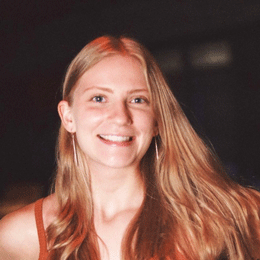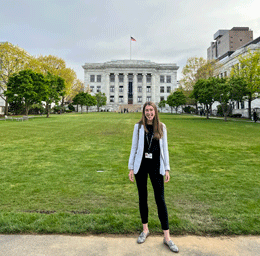Farley + Medicine

The modern healthcare world brings a diverse assortment of complex challenges. From medical conditions without cures and laborious clinical processes, to gaps in healthcare delivery spurred by an aging population and strict regulatory environment, healthcare is a complicated, expensive, and ever-evolving landscape.
The field’s persistent complexity intensifies the need for thoughtful and inventive solutions. This continues driving established enterprises to invest heavily in research, discovery, and innovation. It has also made medical-oriented startups among the entrepreneurial landscape’s most active categories.
Regardless of where students might reside in the Northwestern ecosystem — medicine, engineering, business, law, or the liberal arts — the skills and knowledge they possess can help fuel life-altering results. Through entrepreneurial training, students can transform scientific research, data, clinical observations, or patient insights into tangible solutions that enrich, enhance, and, in some cases, extend life.
How Farley Propels Students Interested in Medical-Oriented Careers
In Farley courses, students interested in medicine- and healthcare-oriented careers develop important skills to power their professional pursuits, such as learning how to:
- Recognize the critical role patients and customers' needs play in creating relevant, accessible, and results-oriented healthcare solutions
- Gain exposure to diverse thinking and new technological tools to expand their knowledge base and better consider patient needs
- Appreciate the role innovation plays in patient-driven healthcare and building sustainable business operations
- Develop communication and leadership skills to function in the diverse healthcare world, one that frequently requires collaboration among professionals from various disciples and backgrounds
- Strengthen their individual brand or that of their organization
- Read the market, negotiate value, and assess the potential of new opportunities
- Embrace the constraints of entrepreneurship and the nuance of the medical world to unearth creative solutions and overcome challenging problems, including clinical and regulatory hurdles
Farley Courses for Students Interested in Medical Careers
NUvention: Medical (ENTREP 470) immerses students in the process of developing and commercializing new medical technologies — from ideation and intellectual property to customer discovery, considering industry regulations, and refining a pitch. In addition, students can explore the following:
- Principles of Entrepreneurship (ENTREP 225)
- Engineering Entrepreneurship (ENTREP 325)
- Entrepreneurial Sales and Marketing (ENTREP 331)
- Tech Product Management (ENTREP 395)
- Tech Ethics and Business Integrity (ENTREP 395)
- Consulting for Wearable Tech (ENTREP 425)
- NUvention: AI (ENTREP 475)
- Product Management (ENTREP 490)
Farley and Beyond
Medical Makers
Medical Makers innovates, designs, and builds medical devices to serve unmet clinical needs. The student club includes a competitive team that participates in a biomedical engineering design competition and a second team that collaborates with nurses at Chicago’s Shirley Ryan AbilityLab to create a problem-solving device.
Healthcare at Kellogg
The Healthcare at Kellogg (HCAK) pathway prepares students for unique challenges and opportunities in the healthcare sector, pairing fundamental managerial disciplines, such as economics and strategy, with in-depth courses on either a Life Sciences/Products Track or Payer/Provider Track. HCAK also includes courses, such as Forging and Funding Healthcare Startups, Medical Technology Financing and Commercialization, and the Healthcare Strategy Consulting Lab.
MD-MBA Program
A joint degree program between Northwestern’s Kellogg School of Management and the Feinberg School of Medicine, the MD-MBA Program blends an extensive background in medicine with MBA studies to cultivate industry leaders equipped to deliver meaningful business results.
Kellogg Healthcare Club
The Kellogg Healthcare Club is designed for students interested in careers in the fast-moving health and biotech industries. Through career, academic, and networking events, the club helps students gain awareness, develop relevant skill sets, and build successful careers in the healthcare industry.
Medical Devices, Disease, and Global Health
A McCormick School of Engineering course, Medical Devices, Disease, and Global Health (BME 380-0-01) examines the intersection of technology and the delivery of healthcare in resource-poor environments.
Designing Product Interactions
In the Designing Product Interactions (DSGN 495-21) course housed within Northwestern’s Segal Design Institute, students build working prototypes of products that combine vision, hearing, and touch in compelling ways.
Second Opinions
In Second Opinions, teams of Feinberg students provide pro-bono consulting to community healthcare organizations.
Alumni Spotlight
 Casey Grage (WCAS ’19)
Casey Grage (WCAS ’19)
Founder and CEO, Hubly Surgical
The Farley Advantage: “NUvention: Medical is the entire reason our cranial drill startup — Hubly Surgical — exists. We were born and bred out of the Farley Center. Through the curriculum and with help from guest speakers, the professors personally walked my early team through the beginning stages of starting a company. All of the course’s professors have remained close mentors ever since, and one of them, Mark Fisher, now serves as Hubly’s chief operating officer.”
Student Spotlight
 Caroline Canning (MD ’23)
Caroline Canning (MD ’23)
Prior to attending Feinberg, Canning spent five years in the tech industry. She also took a one-year sabbatical from medical school to earn a master’s degree in biomedical informatics. During her final year at Feinberg, Canning, who hopes to work in medical technology, enrolled in NUvention: Medical. The course empowered her to continue exploring career possibilities at the intersection of data science and clinical medicine.
The Farley Experience: “NUvention: Medical gave me a lot to think about when developing a new product in the complex US healthcare environment as well as exposure to interdisciplinary perspectives via the course leadership, guest speakers, and my own teammates. Whether I work at an early-stage startup or more established company, I now have a framework to consider the business model, value proposition, and regulatory hurdles I may face.”
